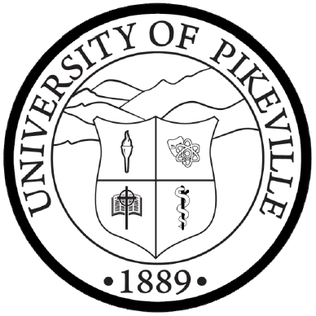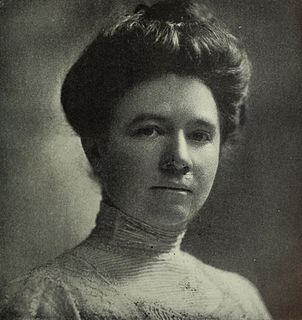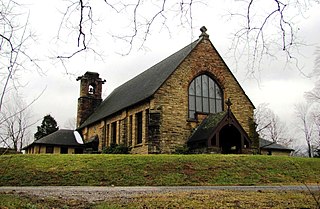Related Research Articles

Letcher County is a county located in the U.S. state of Kentucky. As of the 2010 census, the population was 24,519. Its county seat is Whitesburg. The county, founded in 1842, is named for Robert P. Letcher, Governor of Kentucky from 1840 to 1844.

Blackey is an unincorporated community in Letcher County, Kentucky, in the United States. As of the 2010 census, the population was 120. It is located near the early settlement of Indian Bottom. Blackey is thought to have been named after Blackey Brown, one of its citizens.

Dwight Presbyterian Mission was one of the first American missions to the Native Americans. It was established near present-day Russellville, Arkansas in 1820 to serve the Arkansas Cherokees. After the Cherokee were required to move to Indian Territory in 1828, the mission was reestablished in 1829 near present-day Marble City, Oklahoma. The mission is listed on the National Register of Historic Places.
Warren Wilson College (WWC) is a Private liberal arts college in Swannanoa, North Carolina. WWC is known for its curriculum that combines academics, work, and service. Every student must complete a requisite course of study, work an on-campus job, and perform community service. Warren Wilson is one of the few colleges in the United States that requires students to work for the institution in order to graduate and is one of only nine colleges in the Work Colleges Consortium.

Proctor Academy is a coeducational, independent preparatory boarding school for grades 9–12 located on 2,500 acres (10 km2) in Andover, New Hampshire. There are about 370 students.

The University of Pikeville (UPIKE) is a private university affiliated with the Presbyterian Church (USA) and located in Pikeville, Kentucky. It was founded in 1889 by the Presbyterian Church and is located on a 25-acre (10 ha) campus on a hillside overlooking downtown Pikeville.

Martha McChesney Berry was an American educator and the founder of Berry College in Rome, Georgia.

Kentucky Mountain Bible College (KMBC) is a private Holiness bible college in Vancleve, Kentucky. It is a ministry of the Kentucky Mountain Holiness Association. The college claims that over 70% of its graduates have entered Christian ministry, including speakers, missionaries, and pastors in over 60 countries worldwide.

The Kentucky School for the Deaf (KSD), located in Danville, Kentucky, United States, is a school that provides education to deaf and hard-of-hearing children from elementary through high school levels. Founded in 1823, it was the first school for the deaf west of the Allegheny Mountains. Jacobs Hall, its oldest surviving building, was designated a National Historic Landmark in recognition of this history.

Gurney Norman is an American writer, documentarian, and professor.

Chahta Tamaha served as the capital of the Choctaw Nation from 1863 to 1883 in Indian Territory. The town developed initially around the Armstrong Academy, which was operated by Protestant religious missionaries from 1844 to 1861 to serve Choctaw boys. After the capital was relocated to another town, this community declined.

Goodland Academy is a boarding school located in Choctaw County, Oklahoma, 3 miles (4.8 km) southwest of Hugo in southeastern Oklahoma, U.S.. Founded in 1848 as a Presbyterian mission, it is the oldest private boarding school in Oklahoma still in operation.
Settlement schools are social reform institutions established in rural Appalachia in the early 20th century with the purpose of educating mountain children and improving their isolated rural communities.

Auburn Adventist Academy is a co-educational, Seventh-day Adventist, boarding high school in Auburn, Washington, United States that was founded in 1919. It is operated by the Washington Conference of Seventh-day Adventists and is part of the Seventh-day Adventist education system, the world's second largest Christian school system.
Middlesboro High School is a public high school in Middlesboro, Kentucky, United States one of three schools operated by Middlesboro Independent Schools

Laurelwood Academy is a private secondary school affiliated with the Seventh-day Adventist Church near Jasper, Oregon, United States. It is a part of the Seventh-day Adventist education system, the world's second largest Christian school system. Founded in 1904 in Laurelwood, Oregon, the boarding school moved to a new 20-acre (8.1 ha) campus in rural Lane County outside of Eugene in 2007. The school has grades 9 through 12 and focuses on agriculture in addition to academics.

Sue Bennett College was a private college in London, Kentucky which operated from 1897 through 1997. It was affiliated originally with the Methodist Episcopal Church, South and later the United Methodist Church. It began as an elementary school and ended its days as a four-year college.

The Alpine Institute was a Presbyterian mission school located in Overton County, Tennessee, United States. Operating in one form or another from 1821 until 1947, the school provided badly needed educational services to children living in the remote hill country of the Upper Cumberland region. In 2002, several of the school's surviving structures were added to the National Register of Historic Places as a historic district.
Lees College Campus of Hazard Community and Technical College is the current name for the institution that was founded as a lower school in 1883 by Rev. John J. Dickey in Jackson, Kentucky. It was originally Jackson Academy, an elementary and high school for Breathitt County. It is one of the oldest higher education institutions in the region.
William Burke Belknap the younger (1885–1965) was the son of William Richardson Belknap and Alice Trumbull Silliman. He was an entrepreneur in the family of William Burke Belknap, the elder (1811–1884), son of Morris Burke Belknap of Brimfield, Massachusetts who was engaged in the iron furnace industry and died in 1873. The Belknaps were founders, inventors of patented merchandise, and owners of the Belknap Hardware and Manufacturing Company in Louisville, Kentucky. William Burke Belknap was an economist and a professor of economics at the University of Louisville. Leading up to and during World War II, he volunteered for service with the Red Cross in Ramsay and Plymouth, England. He was a trustee of Berea College and a graduate of Yale and Harvard. As a Kentucky legislator, he served two terms as a representative in the Kentucky General Assembly. He was the owner of Land O'Goshen Farms, where he bred and raised sheep and American saddlebred horses, and he was the president of F.C. Co-operative Milk Producers Association.
References
- 1 2 3 4 5 6 7 8 9 10 11 Helen Wykle (October 28, 2008), "Stuart Robinson School", Settlement Schools of the Southern Mountains, D.H. Ramsey Library, Special Collections, University of North Carolina Asheville, archived from the original on March 20, 2012
- ↑ Preston D. Graham (2002). A kingdom not of this world: Stuart Robinson's struggle to distinguish the sacred from the secular during the Civil War. Mercer University Press. ISBN 978-0-86554-757-5.
- ↑ Blackey, Appalshop, archived from the original on February 23, 2012, retrieved January 8, 2012
- 1 2 "Site Offered for School", Middlesboro Daily News, Middlesboro, Kentucky, February 7, 1961
- ↑ "Presbyterians to Hear Two Noted Speakers Sunday", Sarasota Herald-Tribune, February 22, 1935
- ↑ History, Calvary Campus, retrieved January 8, 2012
- ↑ About Us, Calvary Campus, retrieved January 8, 2012